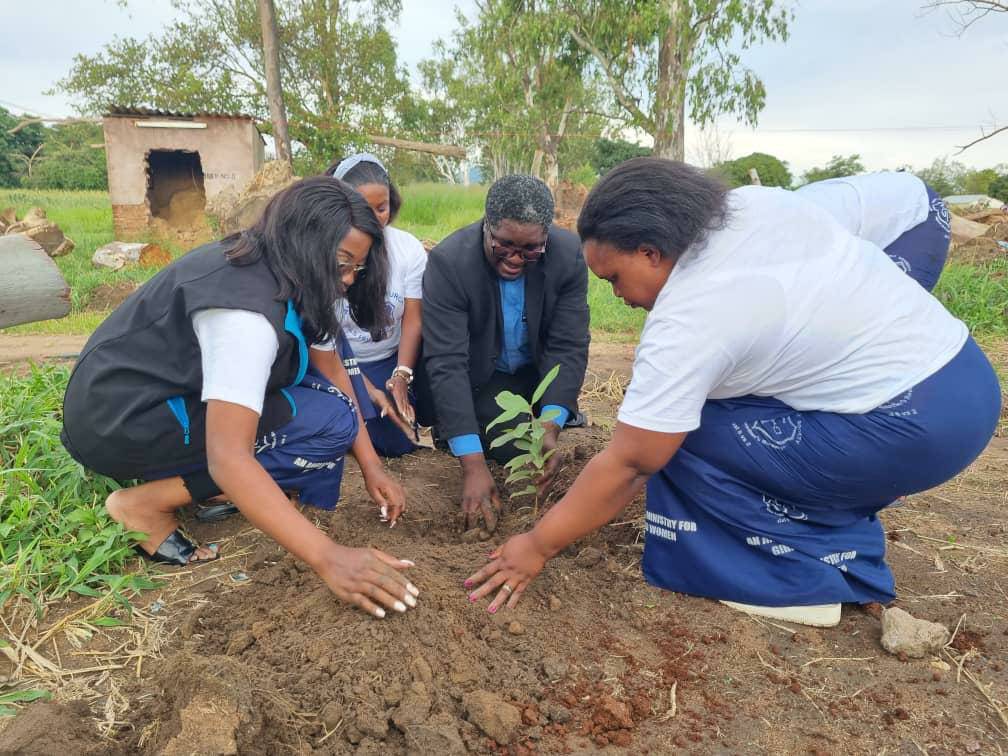Denominations all around the world are awakening to God’s call to care for the earth. It is as if the Holy Spirit is stirring the hearts and souls of Christians everywhere to take care of the only home we have, so that all people, everywhere, can thrive for generations to come.
The Anglican Church has embraced creation care as its fifth “mark of mission” for over three decades now. The five marks of mission in the Anglican tradition provide Anglicans and other Christians around the world a practical and memorable checklist for understanding the holistic nature of mission in our modern world. The first mark of mission is centrally defined by Jesus Christ himself and summarizes what all mission is about.
The Anglican Consultative Council felt the sustainability of our planet was significant enough to be a driving force of mission in the global church, so they added this fifth mark of mission in 1990, “To strive to safeguard the integrity of creation and sustain and renew the life of the earth.”
Ever since, Anglicans around the world have been hard at work toward fulfilling this ongoing mission of the body of Christ. Here are three different movements of the Anglican church that are working for the good of creation, and therefore the good of all people across the globe:
Green Anglicans
Green Anglicans is a movement started by the Anglican Church of Southern Africa in 2004. Formerly the Environmental Network of the Anglican Church of Southern Africa, the movement’s focus is on empowering, encouraging, and holding the church accountable for caring for the earth God has provided for us.
The primary work of Green Anglicans is to resource and inspire Anglicans in the spirituality of caring for creation. They want to inspire and encourage individuals to live sustainable lives, equip churches and dioceses to practical actions as Earthkeepers, and challenge all to prophetic acts of advocacy. They have generated a number of resources to help churches celebrate the Season of Creation, World Environment Day, and Lent (practicing a carbon fast), as well as creating resources for Sunday School and youth. The group also provides training, forums, consultations, and eco-retreats to encourage local churches and leaders, and to help them engage in local opportunities for clean ups, tree planting, God-centered farming, removing alien trees, saving water, reducing plastic usage, and advocating around waste and energy.
Green Anglicans is a very active group across Southern Africa, with lots of recent activity featured in their news archives.
One project that resulted from the inspiration of the Green Anglicans took place in the Anglican church of Tanzania, which distributed 310,000 tree seedlings in the 20 parishes that have congregations in 69 villages in the Njombe region of Tanzania.
For World Wetlands Day at a clean-up day held in Nairobi, Green Anglican member Rev. Dennis Nthenge spoke, advocating for creation care.
“Why should I care for Creation? Because God cares,” Rev. Nthenge said.
Green Anglicans also recently released a booklet called the “Greening of the Canons,” which aims to revise the Canons of ACSA, calling for a change in the way Anglicans incorporate creation care into spiritual and liturgical lives, locally reduce the use of various resources, and act to renew the earth by restoring ecosystems and making church plants more environmentally friendly. The booklet serves as a practical guide to the ways the Canons of ACSA are updated to address the fifth mark of mission. It includes helpful discussion questions to guide a parish’s engagement with creation care in their community.
In addition to this resource there are dozens of additional liturgical resources available to help educate congregations and youth groups about environmental issues.
The Communion Forest
The primary aim of the Communion Forest is to “significantly increase Anglican tree growing and landscape protection around the world and deepen care for creation within the life of the Church.” This global initiative includes a wide range of creation care activities that might include protection, restoration, creation, growth, and multiplication. The goal is for forestation activities to be locally driven according to the natural environment and ecosystem provinces, dioceses, and parishes find themselves in, so a “forest” might actually be about trees or could also be about grassland restoration, wetland preservation, or coastal habitat improvement.
From challenging logging in Solomon Islands to growing trees with school children in Rwanda and more, the Communion Forest is making a difference in churches and ecosystems around the globe.
To get involved, bishops and churches can sign up for a Communion Forest Resources Pack.
Anglican Creation Care Network
The global movement is taking place here in the States as well.
The Anglican Creation Care Network (ACCN) is part of the New Wineskins Missionary Network, which exists to “advance the Kingdom of God by mobilizing Anglicans for authentic, cross-cultural partnership around the world.” The ACCN itself exists to “reclaim Christ as Creator by igniting, captivating, and equipping faithful stewards of Creation.” Their website offers resources to help educate and guide believers who want to do more to use God’s creation to share the love of Christ.
ACCN is co-lead by Reverend Dr. Mary McDonald, an ordained deacon at The River Anglican Church in Blacksburg, Virginia, and Dr. Gretchen Stokes, member of Servants of Christ Anglican Church in Gainesville, Florida, and co-founder of the Anglican Creation Care Ministry network. The two of them just launched the ACCN in September 2022 at the New Wineskins Conference. Together, they are gathering others who have a heart for creation care to form a shared vision and build momentum for this mission.
The network meets on the second Monday of each month for a virtual prayer gathering from 8-9 p.m. EST on Zoom, and anyone is invited to join in the “cross-pollination” efforts of Anglicans here in the States. Learn more about the movement and email the leaders to get started.





 Copyright
2024
Root and Vine
Copyright
2024
Root and Vine